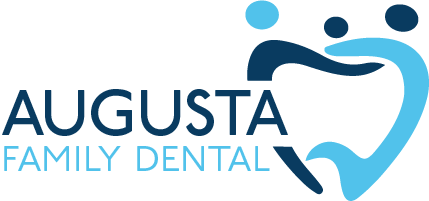
30 Jul The Lifecycle of a Tooth: How Do Our Teeth Age?
Your baby teeth begin developing long before they become visible. While they aren’t permanent, they make great practice for building good oral health habits. The roots of baby teeth are eventually absorbed back into the gums, allowing them to fall out and be replaced by your permanent teeth. You’ll need to provide regular care for your permanent teeth to keep them healthy and help spot dental problems before they start. Brushing and flossing combined with regular dental appointments protect your permanent teeth and help your dentist spot wisdom teeth before they become a painful problem.
Your First Tooth
A child’s first tooth is a big deal, but teeth begin developing in the womb six weeks following conception. Despite not having any visible teeth at birth, children are born with a full set of teeth just under the surface of their pink gums.
The first of those “baby teeth” start to come in after two or three months. This begins the process known as teething, which is when a child’s first set of teeth come in. This is a painful and stressful process for both babies and their parents as the first tooth begins to appear through the gums.
Why Care About Baby Teeth?
The 20 teeth known as baby teeth are temporary, destined to eventually be taken by the Tooth Fairy. If that’s the case, why should parents stress the importance of dental hygiene? Why put so much effort into protecting something that will just fall out anyway?
Baby teeth will fall out eventually, but they still need to be taken care of. For one thing, they’re still able to develop many of the same problems as adults. This includes problems such as:
- Cavities
- Gum disease
- Sensitive teeth
- Bruxism
What’s more, the treatments for these problems will have to be paid for by parents, replaceable or not. Cavities in baby teeth can also spread to a child’s permanent teeth, making good childhood dental health habits essential for long-term oral health.
Baby teeth also create space for permanent teeth. Think of baby teeth as guides for adult teeth. If they were to fall out early, baby teeth may move in to fill the space, making it much more difficult for adult teeth to come in.
Another important aspect of childhood oral hygiene is teaching healthy habits that last long into adulthood. Developing healthy habits such as brushing twice per day for two minutes, flossing once a day, and going to regular dental appointments during childhood can help ensure that children will carry those same habits into adulthood.
Think of baby teeth as training wheels for good dental hygiene. No one is born knowing how to ride a bike, nor is anyone born knowing how to properly take care of their teeth. It takes practice as well as diligent parents who take the time to teach these habits to their children.
Eventually, adult teeth will come in and the training wheels will come off. It then becomes the responsibility for the child to care for their new teeth by using everything they learned when caring for their baby teeth.
Permanent Teeth
As baby teeth fall out, they are replaced with permanent, or “adult,” teeth. Like baby teeth, adult teeth have been developing long before they become visible. In fact, it’s the development of the adult teeth that causes baby teeth to become loose and fall out.
This is because adult teeth actually put pressure on the roots of baby teeth, causing the roots to break down. This lack of a root holding them in is what causes them to fall out in the end.
It is possible for the root of a baby tooth to not be reabsorbed properly, leading to complications when adult teeth start to come in. This can cause the baby tooth to not loosen, resulting in the adult tooth either not coming in at all or to emerge anyway.
This can be a scary proposition for both children and parents alike. Fortunately, serious complications can be avoided with regular visits to the dentist. Our team can catch this problem early on and develop a plan to prevent any major complications from occurring.
Wisdom Teeth
It may seem strange now, but wisdom teeth were actually beneficial for our less-developed ancestors. Sadly, our modern jaws don’t have enough space for these extra molars, leading to all the problems that come along with their development.
For many people, so-called wisdom teeth result in:
- Pain
- Impacted teeth
- Infections
Some lucky folks don’t experience any problems with their wisdom teeth. For the rest of us, regular dental appointments allow dentists to spot them early and tell if they will be an issue or not. This gives you the ability to have them removed before they have a chance to become a problem.
Caring for Your Teeth as You Age
Just like your body, taking care of your teeth is a lifelong job. It doesn’t help that both can break down as you get older, becoming subject to the effects of time as well as the effects of use.
Problems such as tooth decay and gum disease become a more serious threat as you get older. That’s why it’s so important to continue the habits you learned when you were little.
As you get older, make sure that you continue to:
- Brush for two minutes, twice a day
- Floss at least once a day after eating
- Visit your dentist for regular appointments
As you get older, you’ll only grow to appreciate the habits that you learned when you were young. They’ll help keep your teeth as healthy as possible and set you up for a lifetime of happy smiles.
Your teeth begin developing long before your first baby tooth appears. While they are temporary, baby teeth are the perfect time to begin developing good oral health habits. Permanent teeth replace baby teeth after the gums reabsorb their roots. Wisdom teeth are a problem for most people and your dentist can help prevent complications. With the help of your dentist, you can ensure that your permanent teeth last for a good, long time.
Want to know how your teeth are developing? Contact us today to schedule an appointment!
Augusta Family Dental has two convenient locations to better serve you. You can contact our Augusta office by calling (706) 863-4567, or schedule an appointment online. You can schedule an appointment with our Hephzibah office by calling (706) 793-3600.

Sorry, the comment form is closed at this time.